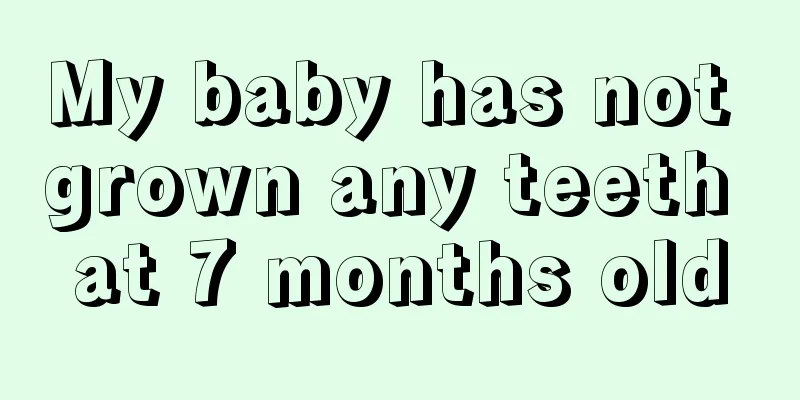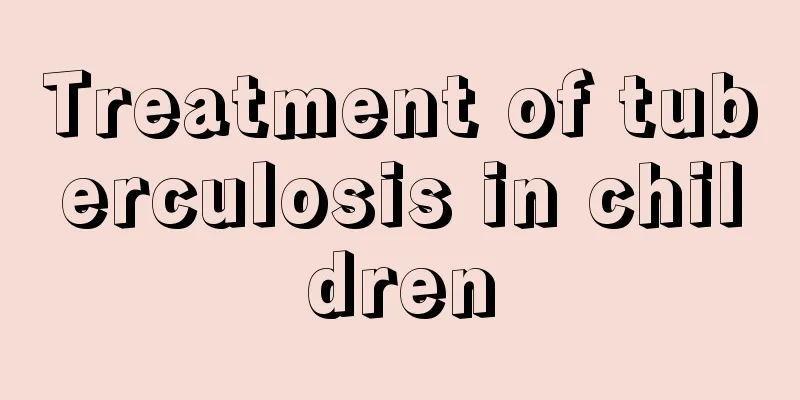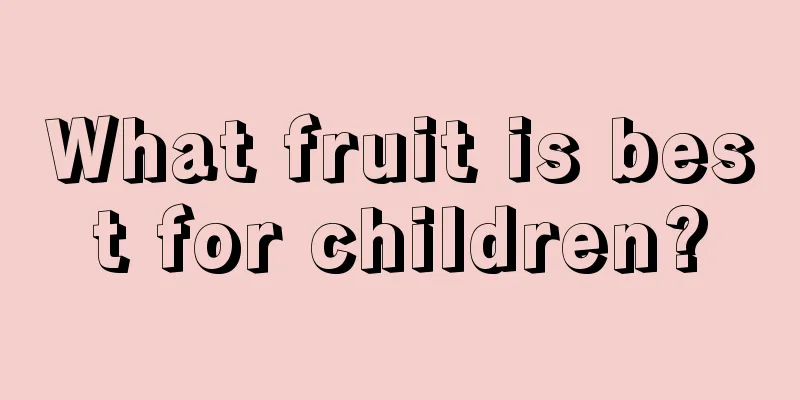My baby has not grown any teeth at 7 months old

|
Since the baby is born, parents' attention has been focused on the child. Every little change in the child makes parents very happy. Generally, the first baby tooth starts to grow when the baby is about six months old. Some mothers find that their baby has not grown teeth at seven months and they are more worried about the child's development. In fact, the speed of teeth growth varies from baby to baby. Some may grow teeth earlier and some later, which is normal. So, is it normal for a baby not to have teeth at seven months? Let me introduce it to you in detail. Is it normal for a 7 month old baby to not have any teeth yet?According to the order of baby's tooth growth, the baby will usually grow the first tooth when it is 6-7 months old. When a baby is born, there are no teeth in his mouth. Normal babies start to grow teeth at an average age of six months. The time of tooth eruption may be early or late depending on the baby's development. All twenty deciduous teeth will not erupt until the age of 2 and a half. The early or late eruption of teeth is not an important indicator of the baby's growth and development. Generally speaking, the early or late eruption of children's teeth is mainly determined by congenital factors. Some children may start to grow teeth at 4 months old, while others may not have their first deciduous tooth until 10 months old. Even if the baby's baby teeth have not erupted after 10 months, there is no need to be nervous. As long as the baby has no other diseases, it is not a big deal if the first baby teeth are delayed until around one year old. Therefore, parents do not need to be overly anxious and should not abuse calcium supplements. As long as you pay attention to feeding, add various supplementary foods reasonably and timely, and let your baby participate in more outdoor activities and bask in the sun, the teeth will grow naturally.
Some babies have clearly reached the age for growing teeth, but why do their teeth still not grow? Parents can't help but become anxious: "Is there a developmental problem?" "Should I take calcium supplements?" In fact, slow tooth growth is not as simple as a lack of nutrition. Let's understand several conditions related to slow tooth growth. 1. Innate inheritance The main reason why young children have slow teething is genetic, including family medical history, race, and even gender differences. According to most research reports, girls' teeth grow earlier than boys. 2. Acquired environment In addition to congenital genetic factors, the acquired environment may also indirectly cause slow tooth growth. Take premature babies for example. The time of their teeth growth must be deducted from the time of their premature birth, so that the conclusion drawn can be more accurate. If the baby is born prematurely at 30 weeks of gestational age, the growth of the first tooth must be delayed by 10 weeks (usually 6 to 8 months after birth). In addition, babies who are born with low birth weight are also likely to have slow teething.
Down syndrome, abnormal pituitary secretion, ectodermal dysplasia syndrome, etc. may all cause differences in the speed of tooth growth in young children, and blood tests must be conducted to determine the true cause. 4. Trauma and infection If a child's deciduous teeth are uneven, it is very likely that the teeth have been hit by external force, causing the ligaments connected to the teeth to necrotize and be replaced by new bone (bone adhesion). From the outside, it appears that only one tooth is growing slower, but in fact it will affect the eruption of permanent teeth. If a child loses their deciduous teeth prematurely, connective tissue will form on the gum surface. If the permanent teeth have not fully grown at this time, they will be compressed and the permanent teeth will erupt more slowly. In addition, sometimes the medications that young children take can cause the gums to thicken, making it difficult for teeth to erupt, which can also give parents the misconception that teeth are growing more slowly. 5. Babies in cold regions have delayed tooth eruption If parents are not doctors, they usually cannot correctly judge the real reason why their children's teeth grow slowly. Therefore, from the time the child's first tooth grows until he or she is one year old, it is recommended to go to the dental clinic for regular check-ups and ask professional doctors to treat the child's specific situation and try to improve the teething condition as soon as possible. |
<<: Why do children have trouble sleeping?
>>: My baby has not grown any teeth at 11 months old
Recommend
What medicine should children take for dry cough without phlegm? Let the experts tell you!
Children often cough, which makes parents very di...
What is the best age for children to learn roller skating?
Roller skating can be said to be one of the more ...
How old can a child speak?
Some people say that children's voices are th...
What is the normal value of a child's head circumference at different months?
In life, we often say that children with big head...
Children with diarrhea and roseola
When it comes to diarrhea, many people are famili...
What are the massage methods for reducing fever in children?
As children grow, they may develop fever symptoms...
Why do children cry at night?
Children are the best gift God has given to every...
How many days does it take for the rash to appear?
Roseola infantum is a very common disease charact...
How many months does a child start talking?
With the development of society, more and more pa...
Is it normal to have teeth at 5 months old?
From the moment the baby was born, he attracted t...
What are the symptoms of nasal polyps in children?
This may be the first time you have heard of the ...
What to do if your child has poor comprehension ability
Many problems of children are discovered by paren...
Benefits of enema in children
As parents, we fear our children catching a cold ...
When should the baby eat VD?
For babies, every nutrient in the body is indispe...
Are there any side effects to the weaning shot?
Weaning is a very important step. If weaning is n...









